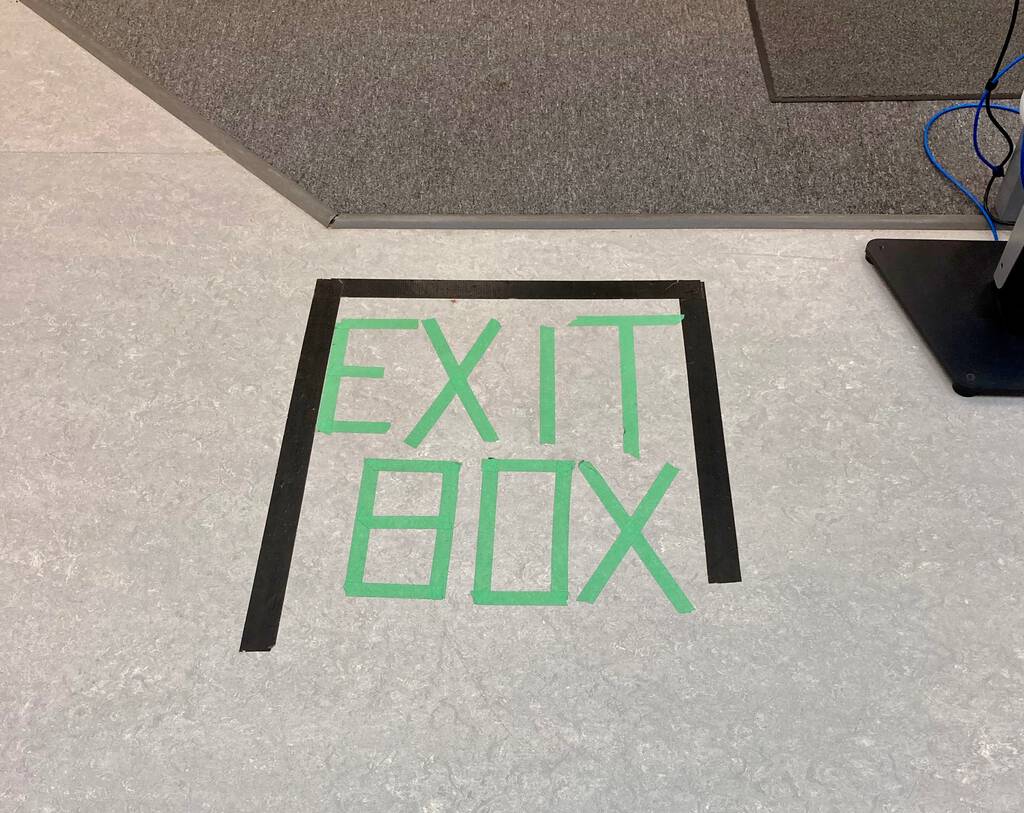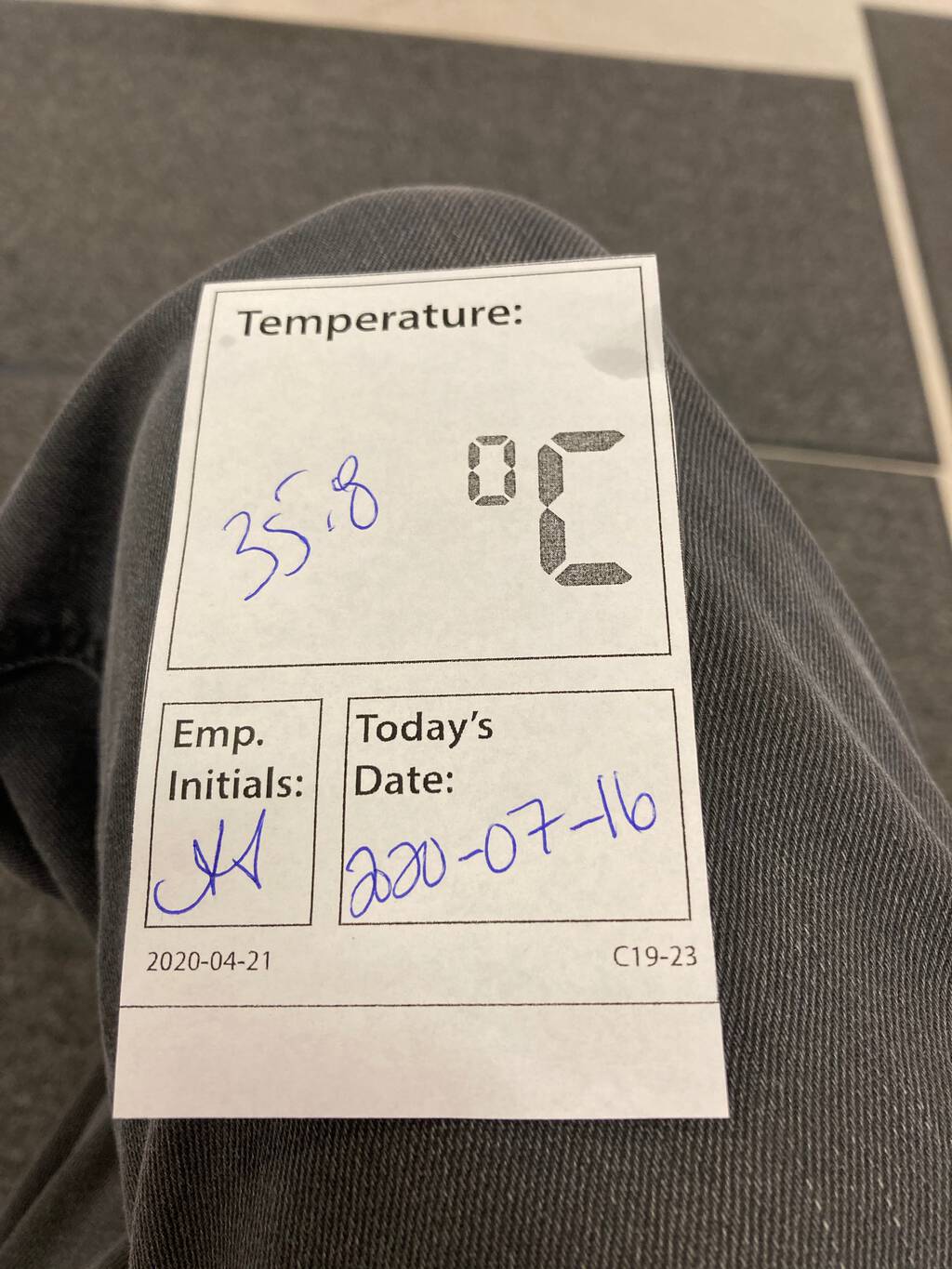In case you were wondering, the correct answer to the question “that’s a nice mask, did you wife make it for you?”, when posed by your plasma donation nurse, is not “she died back in January, after living with cancer for five years, and, technically, we weren’t married,” but rather “my mother-in-law made it, actually.”
I’m proud to say I answered the latter not the former. I’m learning how to do this.

Surely this era will be remembered as the high point of “signage made out of masking tape,” no? The “exit box” is where you stand as you’re leaving Canadian Blood Services after donating; it’s a way station designed to prevent non-socially-distant interaction between those coming and those leaving. I didn’t know that, and I stood there for a lonely few minutes until a kindly nurse saw my plight and gave me the all-clear to leave.
Today was my first trip back to donate plasma since I was “deferred” (their polite way of saying “rejected”) while awaiting confirmation that I did not have skin cancer (fortunately, I did not have skin cancer).
Canadian Blood Services has been operating at full power through the pandemic; my nurse told me, in fact, that a sudden outpouring of “we need to do something!” blood donors caused them not only to be full through the heart of the darkest times, but to be full with nobody missing their appointments. So really full.
Blood plasma can keep in the freezer for up to a year, I learned, while whole blood and its products have a shorter shelf-life, so they temporarily turned off the plasma taps in the early days of the lockdown; things are back to normal now.
“Normal” in the sense that everyone’s wearing a mask, there’s a new temperature check and quiz at the front door, no blood pressure check as part of the pre-screening, and no raisin toast at the end (although snacks for outside consumption are helpfully provided).

My pre-screening questionnaire was a little different this time too, although not for COVID-related reasons: because of my “deferment” last month I was upgraded to the long-form question set, which includes bonus questions like “Was your mother or maternal grandmother born in Mexico, Central America or South America?” in addition to the usual “Have you, in your past or present job, taken care of or handled monkeys or their body fluids?” (no to both).
The donation process itself was much unchanged, masks notwithstanding. Although in my case my blood opted not to flow freely, and so I ended up donating only half the allotted amount. But at least I got to half.
When all that was to be harvested was harvested, I waited in the holding room, not eating raisin toast, grabbed some chips on the way out, and, after my interlude in the Exit Box, headed out for coffee.
I’m booked to go back again in a month.
 I am
I am
Comments
Well done, on answering that
Well done, on answering that trick question that way :) These type of questions, where the assumed answer is included in the question, can be confronting. In your example, but also when it comes to a wide spectrum of cultural and ethnicity related aspects ("where are you really from?"). In each of those cases there are other ways of asking that leave more room for the person answering. It's one the things I learned to much more consciously pay attention to in my international work for e.g. the World Bank, and not be that guy with the awkward questions.
Add new comment